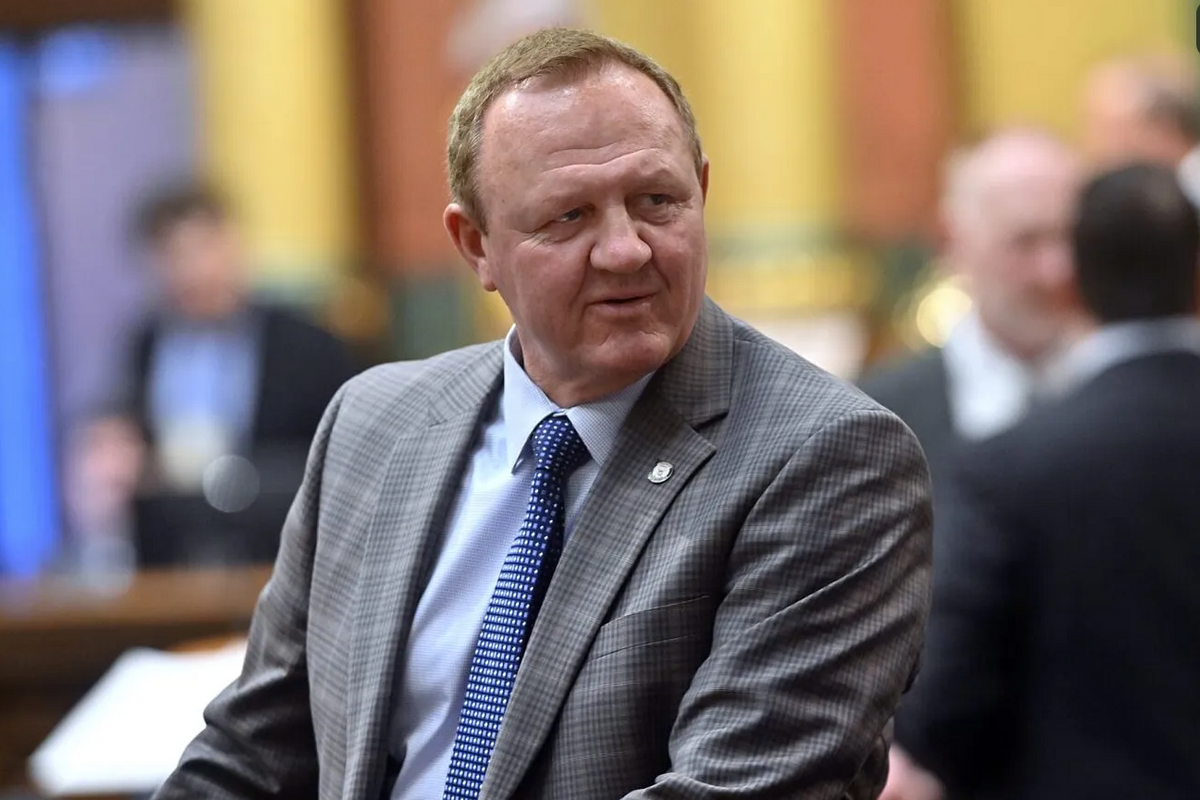Neil Friske
An arch-conservative Republican state representative in Michigan was arrested early Friday morning on charges of sexual assault, criminal possession of a firearm, and simple assault. Police responded to a call of a man with a gun and shots fired on the 2000 block of Windbreak Lane in Lansing, a street where the head of the Michigan Freedom Caucus owns a condominium. Kornelius Wolfram Friske Sr. was said to be “chasing an adult dancer after a disagreement,” according to a Friday tweet by MIRS.news, the website for Michigan Information and Research Service Inc.
“He also had a gun in his possession at the time,” the tweet continued. The adult dancer was said to work for Déjà vu Services, a website that features “1000’s of Beautiful Girls & 3 Ugly ones!” The site provides “Dream Girls” in Detroit, “Fantasy’s (sic)” in Traverse City, “Little Darlings” in Kalamazoo, and “Déjà vu Showgirls” in Lansing.
Friske was held in jail and released on Friday afternoon. He is expected to be arraigned either today or Monday. Police have requested that Friske be charged with one count of felony sexual assault, one count of felony assault “excluding sexual,” and one count of felony weapons offense.
Friske’s reelection campaign issued a statement calling the timing of the `arrest “highly suspect.” “As many of us know, Rep Friske is always exercising his 2nd Amendment right,” the campaign statement continued. Friske is known as one of the most conservative lawmakers in the state of Michigan. He has introduced a bill to repeal a recently passed amendment to the state constitution giving women reproductive freedom. He has also championed efforts to ban books with sexual content from library shelves.
So, let’s sum up. A 62-year-old male Republican lawmaker carrying a gun is found in the street where he lives chasing an adult dancer after allegedly sexually assaulting her. But not to worry: he’s against porn and abortion and affirmative action and all that stuff, so his reelection to the Michigan state house is doubtlessly assured. After all, in the Republican Party, it is the Year of the Felon. Getting charged with waving a gun around while chasing a “Dream Girl” down your own block at 3 a.m. is probably a badge of honor.
Lucian K. Truscott IV, a graduate of West Point, has had a 50-year career as a journalist, novelist, and screenwriter. He has covered Watergate, the Stonewall riots, and wars in Lebanon, Iraq, and Afghanistan. He is also the author of five bestselling novels. You can subscribe to his daily columns at luciantruscott.substack.com and follow him on Twitter @LucianKTruscott and on Facebook at Lucian K. Truscott IV.









